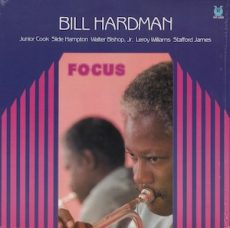
ATLANTA JAZZ FESTIVAL
The 48th annual Atlanta Jazz Festival will take place in Piedmont Park, Midtown Atlanta, on Memorial Day Weekend from May 24th ~ 26th. The festival is free and open to the public, offering a celebration of jazz music, culture, and art.
1:00pm ~ Brandon Woody | Trumpet
3:00pm ~ Tyreek McDole | Vocal
5:00pm ~ Charles McPherson | Saxophone
7:00pm ~ Dianne Reeves | Vocal
9:00pm ~ Joe Gransden Big Band | Trumpet
More Posts: adventure,bandleader,festival,genius,jazz,music,preserving,saxophone,travel,trumpet,vocal

ATLANTA JAZZ FESTIVAL
The 48th annual Atlanta Jazz Festival will take place in Piedmont Park, Midtown Atlanta, on Memorial Day Weekend from May 24th ~ 26th. The festival is free and open to the public, offering a celebration of jazz music, culture, and art.
1:00pm ~ Kenny Banks Jr. | Piano
3:00pm ~ Jarrod Lawson | Vocal, Piano
5:00pm ~ Ravi Coltrane | Tenor & Soprano Saxophone, Clarinet
7:00pm ~ Andromeda Turre | Vocal
9:00pm ~ Russell Gunn & Blackhawk | Trumpet
More Posts: adventure,bandleader,genius,instrumental,jazz,music,piano,saxophone,travel,trumpet,vocal

ATLANTA JAZZ FESTIVAL
1:00pm ~ Khari Cabral | Bass
3:00pm ~ Aneesa Strings | Bass, Vocal
5:00pm ~ Takuya Kuroda | Trumpet
7:00pm ~ Marsha Ambrosius | Vocal
9:00pm ~ Derrick Hodge | Bass
More Posts: adventure,bandleader,bass,festival,genius,instrumental,jazz,music,preserving,travel,trumpet,vocal

ELEW
Eric Robert Lewis, popularly known as ELEW, is an American Concert Pianist who has found crossover success playing rock and pop music. He is known for his unconventional and physical playing style, which eschews a piano bench and includes reaching inside the piano lid to pull at the strings directly, as well as the creation that he calls “Rockjazz”, a genre that takes the improvisational aspect of jazz and ‘threads it through the eye of the needle of rock.
The Band: Elew ~ Piano | Michael Cruse ~ Trumpet | Bar Filipowicz ~ Bass | David Hawkins ~ Drums
Cover Charge: $40.00
More Posts: adventure,bandleader,bass,club,drums,genius,instrumental,jazz,music,preserving,travel,trumpet

Requisites
Focus ~ Bill Hardman | By Eddie Carter
This morning’s discussion is a terrific album by Bill Hardman. Focus (Muse Records MR 5259) is his fourth release as a leader, and a hidden gem in his catalog. Bill was born and raised in Cleveland, Ohio, where his jazz journey began playing with Tadd Dameron while in high school, and after graduating, with Tiny Bradshaw. His first recording with Jackie McLean in 1956 marked the beginning of a career that, although not widely known, earned deep respect in jazz circles for his exceptional trumpet and flugelhorn performances. On this album, Bill’s trumpet is joined by Slide Hampton on trombone (tracks: A2, A3, B1, B3), Junior Cook on tenor sax, Walter Bishop Jr. on piano, Mark Elf on guitar (B2), Stafford James on bass, and Leroy Williams on drums. My copy is the 1980 U.S. stereo release.
Side One is off to the races with Avila & Tequila by Hank Mobley. Leroy opens with a spirited introduction, accompanied by Walter and Stafford, setting the stage for the ensemble’s collective theme. Bill soars through the opening solo energetically. Junior’s following statement is brimming with dynamic energy. Walter maintains the vigorous momentum next, and Leroy charges the finale in a short workout, culminating in the theme’s reprise and fadeout. The sextet eases into the medium melody of Cubicle by Walter Bishop Jr. Bill gets into a good groove on the lead solo. Slide has an outstanding moment before Junior takes over to put his ideas into practice. Walter wraps it up before the restatement and exit.
Up next is Bill Lee’s Too Little, Too Late. The sextet’s medium-tempo introduction and melody start things off. Bill gets things going with a relaxing interpretation, then Slide moves with unhampered ease in the following solo. Junior jumps into a short, articulate statement next, and Walter wraps things up with a satisfying conclusion, preceding the closing chorus. The title tune, Focus by Tadd Dameron, changes the direction to begin the second side with the ensemble’s upbeat introduction and theme in unison. Slide steps up first to give a lively solo. Junior glides over the rhythm section with agility and skillful confidence next, then Bill attacks the following reading with virile lyricism. Walter continues conveying happy thoughts on the piano, and Stafford takes a short walk leading to the ending theme.
My One and Only Love by Robert Mellin and Guy Wood begins with Walter’s introduction, setting the mood for Bill’s tender melody with Junior shadowing him as it unfolds. Junior tells a touching story in the opening statement, then Mark delivers notes of great beauty in his only solo spotlight. Bill follows with a passionately haunting interpretation preceding his return to the gentle ending theme and soft climax. Minority by Basheer Qusim takes off like a race car with Leroy leading the sextet into a speedy melody. Bill goes to work first with a spirited solo, then Junior cooks at the right temperature. Slide infuses the following reading with riveting urgency. Walter builds the following statement exquisitely, and Leroy shines in a short workout before the melody’s restatement and finale.
Fred Seibert produced Focus, and the recording engineer was Fred Miller. The album is a joy to listen to, with a superb soundstage that brings the musicians to the sweet spot in your listening room with stunning fidelity. Bill Hardman recorded only five albums as a leader, but his discography as a sideman is extensive, including with Art Blakey and The Jazz Messengers, Lou Donaldson, Charles Mingus, and Horace Silver. He also co-led a group with Junior Cook but ultimately remained little known to the general public. He died on December 6, 1990, from a brain hemorrhage at age fifty-seven. If you’re a hard bop fan, I invite you to check out Focus by Bill Hardman on your next vinyl hunt. It’ll reward you with many hours of listening pleasure, especially if you’re a fan of jazz trumpet!
~ Jackie’s Pal (Prestige PRLP 7068) – Source: Discogs.com
~My One and Only Love – Source: JazzStandards.com
© 2025 by Edward Thomas Carter
More Posts: choice,classic,collectible,collector,flugelhorn,history,instrumental,jazz,music,trumpet


